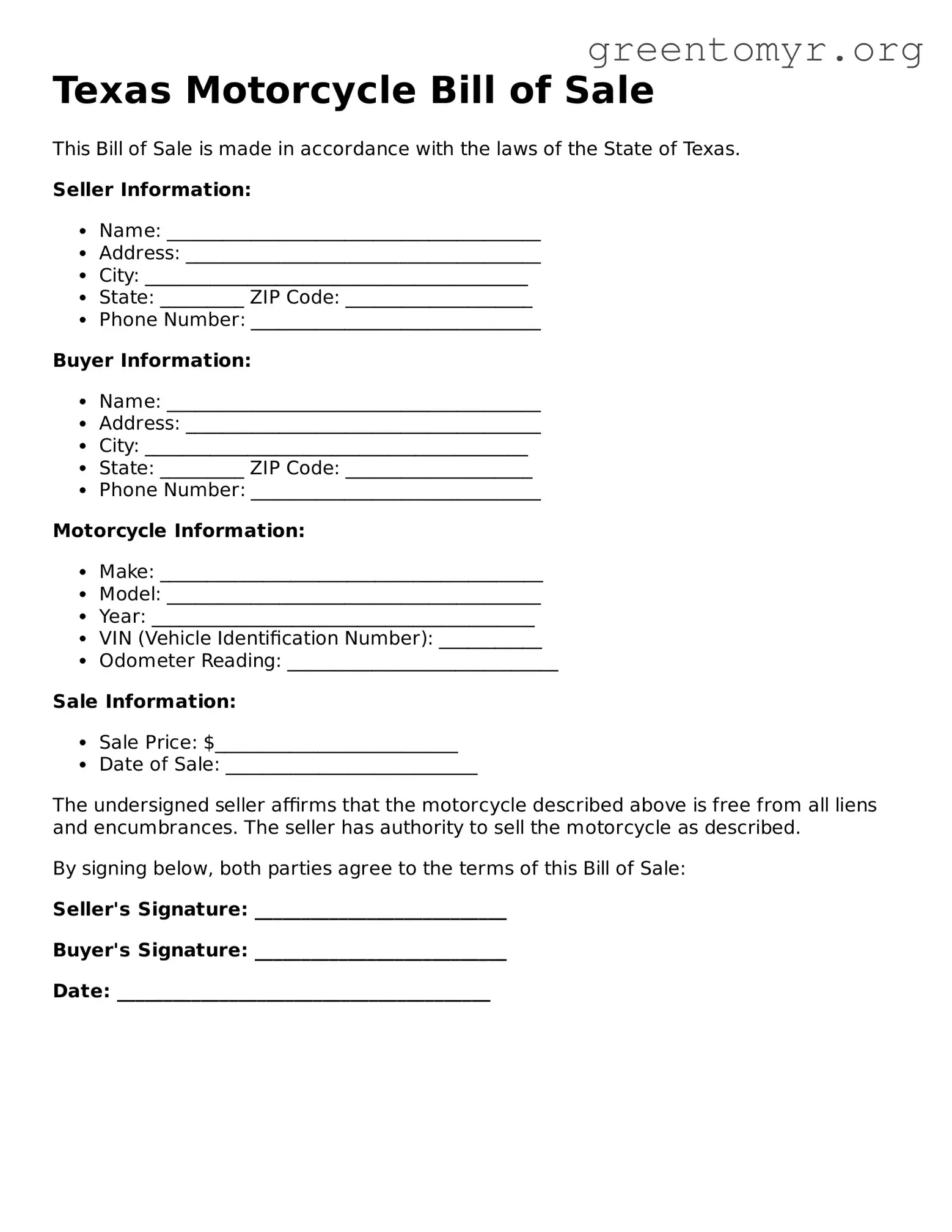When filling out the Texas Motorcycle Bill of Sale form, individuals often overlook crucial details that can lead to complications down the road. One common mistake is failing to provide accurate information about the motorcycle's Vehicle Identification Number (VIN). The VIN is the unique identifier for the motorcycle, and any errors here can cause issues when registering the vehicle with the state. It is essential to double-check that the VIN matches the one found on the motorcycle.
Another frequent error is neglecting to include the odometer reading. This piece of information is important as it provides a clear picture of the motorcycle's usage. Not only is it a requirement, but it also protects both the seller and the buyer against disputes regarding mileage and wear over time.
Many people also miss the significance of dating the document properly. A Bill of Sale should always include the exact date of the transaction. Without a clear date, buyers may find it difficult to prove ownership, or sellers could face challenges if there are any future claims regarding the sale.
Additionally, individuals often forget to have both the buyer and seller sign the form. Not obtaining both signatures can invalidate the document, leading to potential disagreements later. Both parties should make sure their signatures are present, which verifies the agreement.
Providing incorrect personal information is another error that can hinder a smooth transaction. It is vital to include the full names and addresses of both the buyer and the seller. This information not only records the identities involved but also can be crucial for any legal matters down the line.
One not-so-obvious mistake involves overlooking any state-specific requirements or regulations. Texas has specific laws governing the sale of motor vehicles, including motorcycles. Sellers should ensure they are following all applicable rules to avoid penalties or complications with the sale.
Another oversight involves the omission of the purchase price. This amount must be clearly stated in the form, as it is a critical part of the transaction. Without this, it can be challenging to determine taxes owed or to establish the motorcycle's value in the event of a dispute.
Many mistakenly believe that a Bill of Sale does not need to include any conditions regarding the sale. Clarity about whether the sale is “as is” or under warranty is vital. This setting of expectations can protect both parties and provide a clear understanding of the deal.
Some fill out the form but fail to keep copies for their records. Having a copy can be invaluable if any disputes arise post-sale. It is good practice to maintain a record for both buyer and seller, ensuring a reference point if needed.
Lastly, failing to consult with local authorities about registration requirements can lead to complications. It's wise to understand how to proceed after the form is filled out. If buyers and sellers are unaware of what follows the sale in terms of paperwork and state requirements, it could lead to unnecessary delays or issues.
